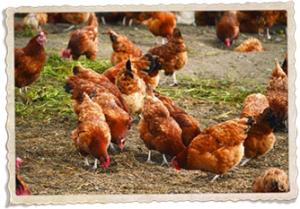Part of the joy of having backyard chickens is having fresh eggs. While it’s great to take those eggs and use them that very morning, what do you do if you want to use them at a later date? Here we go through everything you need to know in order to properly store your chickens’ freshly laid eggs.
Clean them first
The first thing you need to do after collecting your chickens’ freshly laid eggs is to clean them when necessary. Technically, eggs stay fresh for longer if you don’t clean them, but no matter how clean you keep the nesting boxes, you’ll still get the occasional dirty egg. So, since you’ll likely be using these eggs for cooking, it’s best to wipe off any dirt or muck that may be on the shells after collecting them.
Storing eggs at room temperature
Contrary to popular belief, eggs can be kept at room temperature. They can be kept out of the fridge for about a month, but they typically taste better if you use them within the first two weeks. You can store them in a dish or basket, but an egg carton usually works best. Just make sure you store them with the pointy end down to keep it fresh.
Storing eggs in the fridge
If you want your eggs to last for as long as possible, then it’s best to store them in the fridge. Put the eggs in an egg carton or sealed container, then write down the date they were laid so that you can keep track of which eggs are which. Storing your eggs in this manner will keep them fresh for up to six months.
A note on freezing eggs
When you have a surplus of eggs from your chickens, you may have too many for you to eat over the next several months. Some people try selling their eggs or giving them to friends and neighbors, but others freeze them.
You can indeed freeze eggs, but you can’t keep them in their shell. As such, there are a few methods of freezing your eggs. Let’s break it down for you:
- Whole Eggs: When freezing whole eggs, beat them until well-blended and then pour them into a freezer-safe container.
- Separating the Eggs: You can also freeze eggs by separating the whites from the yolks. Egg whites can be poured into a freezer-safe container, while yolks will need a special process. To freeze egg yolks, beat in either 1/8 tsp. of salt or 1 1/2 tsp. of sugar to prevent the yolks from becoming gelatinous.
- Hard Boiled: Hard boiled eggs can also be frozen, but only the yolks. Whole hard boiled eggs and whites become tough and watery after being frozen.
Have more questions about how to store your freshly laid eggs? Then feel free to contact Chickens for Backyards for any of your chicken raising needs.

